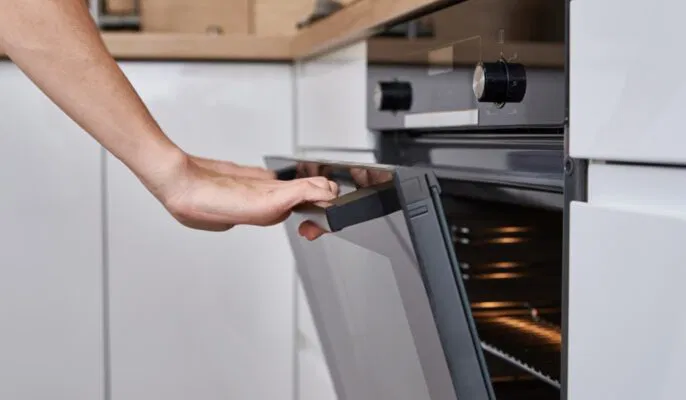
When it comes to cooking, the type of oven you use can significantly impact your culinary results. Electric ovens have become a popular choice in many kitchens, but how do they stack up against other types of ovens? In this article, we’ll explore the benefits and drawbacks of using an electric oven compared to gas ovens and convection ovens, helping you make an informed decision for your kitchen needs.
Introduction to Oven Types
Choosing the right oven for your kitchen isn’t just about personal preference—it also involves understanding how different types of ovens work and what benefits they offer. Whether you’re a casual cook or a seasoned chef, knowing the pros and cons of electric ovens compared to other options can make a big difference in your cooking experience.
What is an Electric Oven?
An electric oven uses electric coils or a heating element to generate heat. This type of oven is known for its precise temperature control and even heating, which can make a noticeable difference in baking and roasting.
The Benefits of Electric Ovens
1. Consistent Temperature Control
One of the standout features of electric ovens is their ability to maintain a consistent temperature. This can be particularly beneficial for baking delicate items like pastries and cakes that require precise heat for the best results.
2. Even Heating
Electric ovens are designed to heat evenly, which means no more hot spots in your dishes. This even heating can lead to better cooking outcomes and more evenly browned food.
3. Easy to Clean
Electric ovens often have a smooth, flat surface, making them easier to clean compared to gas ovens with their grates and burners. Plus, many electric ovens come with self-cleaning features.
4. Predictable Performance
Electric ovens tend to have fewer variables in their cooking process, which can be ideal for those who prefer a more predictable and controlled cooking environment.
The Drawbacks of Electric Ovens
1. Slower to Heat Up
Compared to gas ovens, electric ovens typically take longer to reach the desired temperature. This can be a bit of a hassle if you’re in a hurry.
2. Power Dependency
Electric ovens require a consistent power supply. In the event of a power outage, you won’t be able to use your oven, which can be a significant drawback in areas with unstable electricity.
3. Higher Initial Cost
Electric ovens can sometimes be more expensive to purchase compared to gas ovens, though this varies depending on the model and features.
Comparing Electric Ovens with Gas Ovens
1. Cooking Speed
Gas ovens heat up faster than electric ovens, which can be an advantage if you’re cooking multiple dishes or need to get dinner on the table quickly.
2. Moisture Retention
Gas ovens generally provide a moister heat, which can help in cooking foods like roasts or casseroles that benefit from a bit of humidity.
3. Energy Costs
Gas ovens might have lower operating costs depending on local gas prices, but the initial cost of a gas oven can be higher, especially if you need to install a gas line.
Comparing Electric Ovens with Convection Ovens
1. Air Circulation
Convection ovens use a fan to circulate hot air, which can cook food more evenly and reduce cooking times. Electric ovens can sometimes fall short in this aspect unless they come with a built-in convection feature.
2. Versatility
While electric ovens are great for baking and roasting, convection ovens offer more versatility with their even air distribution, making them a good choice for a variety of cooking techniques.
Energy Efficiency of Electric Ovens
Electric ovens are generally considered to be more energy-efficient than gas ovens, especially in terms of maintaining a stable cooking temperature. However, they can still be less efficient compared to modern convection ovens.
Cost Considerations
Purchase Price
Electric ovens can have a wide range of prices, often influenced by their features and brand. Gas ovens may also vary in price, but installation costs can add to the total expense.
Operating Costs
Electricity rates can make electric ovens more expensive to run compared to gas ovens, depending on your local utility costs.
Ease of Use and Maintenance
Electric ovens are typically easier to use and maintain, with fewer parts to clean and no need for gas connections. This can be a significant advantage for many users.
Cooking Performance
Electric ovens are praised for their ability to provide consistent and precise heat. This makes them excellent for baking, but their performance in roasting and broiling can sometimes lag behind gas or convection ovens.
Impact on Cooking Time
Electric ovens may take longer to preheat, which can affect overall cooking times. However, once they reach the desired temperature, they can cook food quite efficiently.
Environmental Considerations
Electric ovens can be more environmentally friendly if your home uses renewable energy sources. However, their impact depends on how the electricity is generated in your area.
Space and Design
Electric ovens often have a sleek, modern design that can fit well into contemporary kitchens. Their design might also influence how much space they take up compared to other oven types.
Safety Features
Electric ovens usually come with various safety features, such as automatic shut-off and cool-to-the-touch surfaces, which can make them a safer choice, especially in households with children.
FAQs
Are electric ovens better for baking than gas ovens?
Yes, electric ovens are often preferred for baking due to their consistent temperature and even heating, which can lead to better results with baked goods.
Can I use an electric oven during a power outage?
No, electric ovens require a power supply to operate. During a power outage, you won’t be able to use an electric oven.
How do electric ovens compare to convection ovens in terms of cooking performance?
Convection ovens generally offer better cooking performance due to their air circulation, which provides even heating and can reduce cooking times.
Are electric ovens more expensive to run than gas ovens?
Electric ovens can be more expensive to operate, depending on local electricity rates compared to gas prices.
What are some key safety features of electric ovens?
Electric ovens often include features like automatic shut-off and cool-to-the-touch surfaces, enhancing safety, especially in households with children.
Conclusion
In the end, the choice between an electric oven and other types of ovens depends on your specific needs and cooking preferences. Electric ovens offer precise temperature control, even heating, and ease of maintenance, but they might fall short in terms of heating speed and power dependency. Understanding the benefits and drawbacks of electric ovens compared to gas and convection ovens can help you make a decision that best fits your kitchen and lifestyle.



